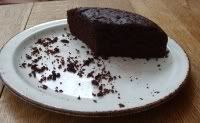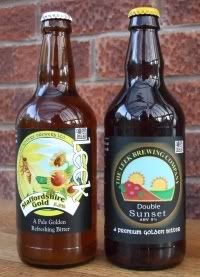 Yesterday was the feast of Whitsun, or Pentecost, commemorating the gift of the Holy Spirit that allowed everybody, of whatever culture, to understand each other and the Christian message. Given the traditional role of this Spirit as the comforter and advocate of christian communities, it's maybe no surprise that the old customs of Whit - which persisted in diluted form right into the twentieth century, all the way up to sedate church fetes - are about communities coming together to eat, drink and celebrate their communal life.
Yesterday was the feast of Whitsun, or Pentecost, commemorating the gift of the Holy Spirit that allowed everybody, of whatever culture, to understand each other and the Christian message. Given the traditional role of this Spirit as the comforter and advocate of christian communities, it's maybe no surprise that the old customs of Whit - which persisted in diluted form right into the twentieth century, all the way up to sedate church fetes - are about communities coming together to eat, drink and celebrate their communal life.Cakes: this is another time of year (along with Mothers Day and Easter Day) that simnel cakes were made. The name 'simnel' basically means they were made with the best flour. We've all been enjoying one of our favourite seasonal cakes over the last couple of days. While beetroot's still around - not for too much longer - this cake is unusual, delicious and a real treat.
75 g cocoa
180 g plain flour (it's also very good with spelt flour)
2 teaspoons baking powder
250 g muscovado sugar
250 g cooked beetroot
3 large eggs
200 ml groundnut oil
Vanilla extract
Make the beetroot into a purée in a food processor. Keep whizzing it and add the eggs, and then the oil until fully mixed. Mix all the dry ingredients in a bowl and then add the beetroot purée to them. Transfer to a round cake tin (22cm diameter, one with a removable base is best) & bake at 180°C for about 40-45 minutes (in a non-fan oven - check after half an hour in a fan oven).
This is based on a recipe on the Abel & Cole website, sent in by one of their customers. We use muscovado rather than castor sugar as it makes it stickier and tones down the purple colour to make it less alarming for small children!
Ale: Whitsun was one of the major times of year for Church Ales, a late medieval development in England whereby a community could come together to celebrate and at the same time raise funds for the church, the focal point of local society. The growing popular enthusiasm for a rather dour and puritanical Protestantism (from the reign of Elizabeth I onwards) gradually put paid to this in England as church-sponsored immorality and licentiousness was condemned. Later, more staid, expressions of community on this day can be seen in the Whit Walks organised by local communities, mostly in the north, for Whit Monday.
 It was not the end for the celebrations, though, even as the dominant morality separated activities into 'religious' and 'secular'. As Ronald Hutton points out, May always had the happy coincidence of warmer weather (allowing outside gatherings) and a hiatus between the 'heavy jobs' of ploughing & sowing, and hay-making. Most likely, this originally led to it being a good time to hold games and open-air drinking and eating. What happened when the connection with the church was broken was that the celebrations simply passed into more private and secular forms, rather than public and religious. Now there are only the odd remnants of these celebrations, as the holiday has declined. Whit Monday was in fact once a public holiday, but lost this status in the 1970s with the creation of the unmovable late Spring bank holiday on the last Monday of May, no longer dependent on Easter. Despite this, you might still hear some refer to it as the 'Whit holiday'.
It was not the end for the celebrations, though, even as the dominant morality separated activities into 'religious' and 'secular'. As Ronald Hutton points out, May always had the happy coincidence of warmer weather (allowing outside gatherings) and a hiatus between the 'heavy jobs' of ploughing & sowing, and hay-making. Most likely, this originally led to it being a good time to hold games and open-air drinking and eating. What happened when the connection with the church was broken was that the celebrations simply passed into more private and secular forms, rather than public and religious. Now there are only the odd remnants of these celebrations, as the holiday has declined. Whit Monday was in fact once a public holiday, but lost this status in the 1970s with the creation of the unmovable late Spring bank holiday on the last Monday of May, no longer dependent on Easter. Despite this, you might still hear some refer to it as the 'Whit holiday'.Feeling that it was right to have some ale to go with (or after) the cake, I had a new beer, for me, from the Leek Brewing Company - an excellent strong (5%) golden ale called 'Double Sunset'. Very nice flowery, hoppy character to it, quite sweet despite this and easy to drink.
No comments:
Post a Comment